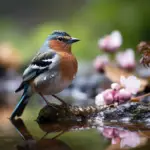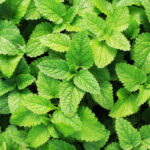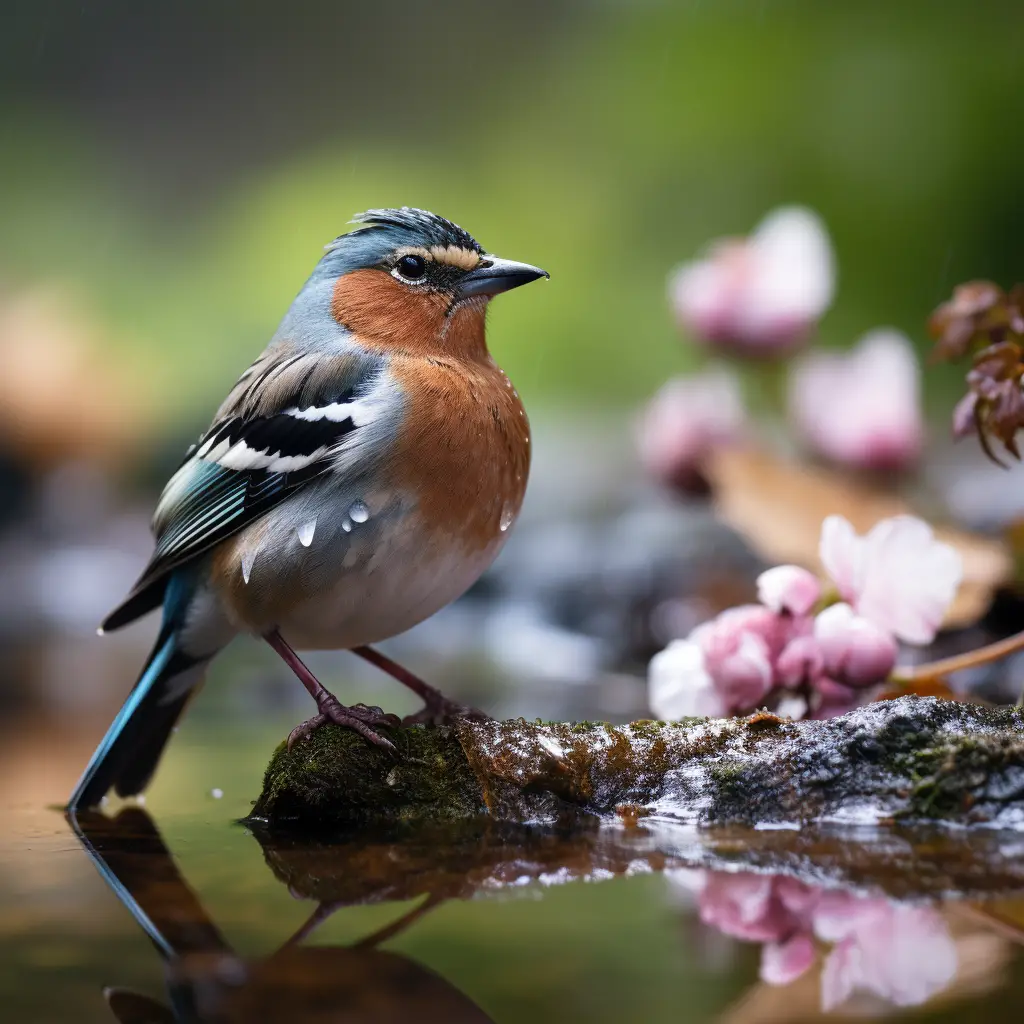
Ground squirrels can be a nuisance in your yard, digging up plants and causing other damage. You can try a few methods if you want to eliminate them. This article will outline some of the most effective ways to get rid of ground squirrels.
What is a Ground Squirrel?
If you live in North America, you’ve seen a ground squirrel. These tiny rodents are ubiquitous in many parts of the continent, and they’re known for their characteristic burrowing behavior. But what exactly are ground squirrels, and what makes them so unique? Read on to find out.
Ground squirrels are a type of rodent belonging to the Sciuridae family, including chipmunks, prairie dogs, and marmots. Approximately 60 different species of ground squirrels are found throughout the world, but most of them live in North America.
These creatures get their name from their habit of burrowing underground, where they build extensive tunnel systems that can span for miles. Some ground squirrel burrows have reached depths of up to 15 feet!
While most ground squirrels are herbivores, some species occasionally eat insects or small reptiles. Ground squirrels have sharp incisors that they use for cutting vegetation and strong claws that come in handy for digging.
These furry creatures typically have brown or gray fur, but their coats vary considerably depending on the species.
For example, the California ground squirrel has a grayish-brown coat with white streaks running down its sides, while the Belding’s ground squirrel has a reddish-brown coat with white patches on its belly and legs.
Ground squirrels are generally active during the day and spend much time foraging for food or sunning themselves. However, they will retreat to the safety of their burrows at night or during bad weather conditions.
Ground squirrels hibernate during the winter, during which their heart rates and body temperatures can drop significantly as they enter a state of torpor.
When spring arrives, and temperatures rise, ground squirrels emerge from their burrows and mate.
After gestation periods that last anywhere from 30 to 45 days, female ground squirrels will give birth to litters of two to eight baby groundhogs. Baby groundhogs are born blind and deaf but proliferate, reaching adulthood after just one year.
As common as they are, there’s a good chance you don’t know much about ground squirrels—but that’s all about to change! These tiny rodents are fascinating creatures with plenty of quirks and characteristics that make them unique.
So next time you see a groundhog scurrying around your backyard, take a moment to appreciate all that these amazing animals have to offer.
What Attracts Ground Squirrels to My Yard?
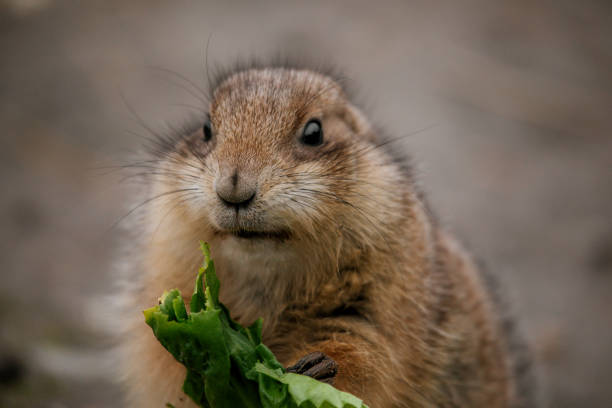
Ground squirrels are a common sight in many yards and gardens. While some people consider them to be pests, others see them as welcome additions to the ecosystem. So, what attracts ground squirrels to yards in the first place?
It’s All About the Food
One of the main things that attract ground squirrels to yards is food. These creatures are omnivorous, so they’re willing to eat just about anything. In the wild, their diet consists of plants, insects, and small vertebrates. However, they’re not picky eaters and will gladly munch on whatever they can find in your yard, including fruits, vegetables, nuts, and seeds.
Ground squirrels are also attracted to yards because of the presence of water. These animals need to drink water daily to stay hydrated, so a nearby water source is a big plus. A bowl of water or a birdbath makes an ideal spot for ground squirrels to drink and helps keep them coming back to your yard daily.
Dangers of Attracting Ground Squirrels
While some people may see ground squirrels as cute and cuddly creatures, it’s important to remember that they are wild animals. As such, some risks are associated with attracting them to your property.
The most significant danger is the risk of disease transmission. Ground squirrels can carry fleas and ticks that may transmit diseases like leptospirosis and Lyme disease to humans and pets alike.
Additionally, these animals are known to hoard food, which can attract other pests like rats and mice into your yard in search of an easy meal.
Whether you see them as pests or as part of the ecosystem, there’s no denying that ground squirrels are attracted to many yards and gardens. The main things that attract these creatures are food and water.
However, it’s essential to know the risks associated with attracting ground squirrels to your property, such as disease transmission and increased pest activity.
What kind of holes do ground squirrels make?
Ground squirrels are a type of rodent common in many parts of the world. These small animals are known for digging holes in the ground. Ground squirrel holes can be a nuisance to homeowners because they can damage lawns and gardens. This blog post will take a closer look at ground squirrel holes and how to deal with them.
Types of Ground Squirrel Holes
Ground squirrels typically make two holes: temporary burrows and permanent burrows. Temporary burrows are used for shelter and protection from predators. These caves are generally shallow and do not have complex systems of tunnels.
Permanent burrows are used for nesting and rearing young. Permanent shelters can be pretty tricky, with multiple entrances and tunnels. Ground squirrels will also use their permanent burrows as storage for food and other supplies.
Dealing With Ground Squirrel Holes
The best way to deal with ground squirrel holes is to prevent them from happening in the first place. Keep your yard clean and free of debris where ground squirrels can hide.
Remove any potential food sources from your property, such as bird seed or pet food. You can try trapping and relocating the animals if you have an existing ground squirrel problem.
However, this is not always effective because ground squirrels are very good at digging new holes. The best way to solve a ground squirrel hole problem is to call a professional pest control company specializing in dealing with these pests.
Ground squirrels are small rodents that are known for their habit of digging holes in the ground. Ground squirrel holes can damage lawns and gardens. There are two ground squirrel holes: temporary burrows and permanent burrows. The best way to prevent ground squirrel holes is to keep your yard clean and debris-free.
If you have an existing problem, you can try trapping and relocating the animals or call a professional pest control company.
What time of day do ground squirrels come out?
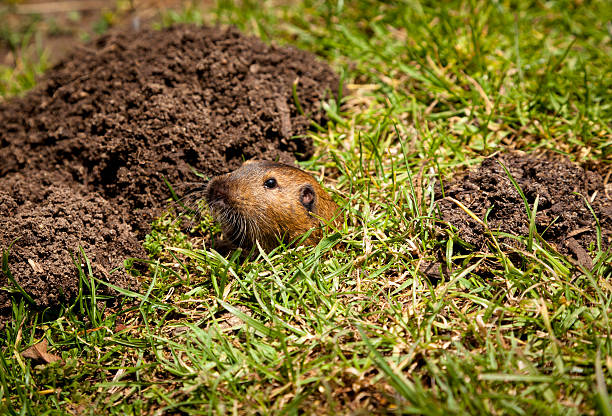
Many people are familiar with seeing a ground squirrel darting across a lawn or scurrying up a tree. These small mammals are usually active during the daytime, but have you ever wondered what they do during the early morning and late evening hours? Let’s look at ground squirrels’ daily routines to find out.
Ground squirrels are diurnal animals that are active during the day and sleep at night. However, they are not active throughout the day; instead, they tend to be most active during the early morning and late afternoon hours.
During the early morning, ground squirrels typically come out of their burrows to feed on any available plants. Once they have finished eating, they will spend some time grooming themselves before going back into their burrows to rest.
As the day starts to cool off in the late afternoon, ground squirrels will again come out of their burrows to forage for food. After eating their fill, they will often play with each other or sunbathe until it starts to get dark. Once it darkens, they will go back into their burrows and sleep until the following day.
Ground squirrels are exciting creatures that many people enjoy watching. By understanding their daily routines, we can better appreciate these creatures and their role in our ecosystems.
Signs of a Ground Squirrel Infestation
Ground squirrels are a common problem for homeowners in the western United States. These rodents are known for their burrowing habits and can cause extensive damage to lawns and gardens. If you suspect a ground squirrel infestation, there are a few key signs.
Sign #1: Damage to Plants and Lawns
One of the telltale signs of a ground squirrel infestation is damage to plants and lawns.
Ground squirrels are burrowing animals and often tunnel underneath lawns and gardens in search of food. This can result in unsightly holes and patches of dead grass. In addition, if ground squirrels find their way into your garden, they may start eating your fruits, vegetables, and flowers.
Sign #2: Increased Scratching Noises
Another sign that you may have a ground squirrel infestation is increased scratching noises around your home. Ground squirrels are nocturnal animals, so you’re most likely to hear them when they’re active at night. If you start hearing scratching noises from your attic, walls, or crawlspace, there’s a good chance you have a ground squirrel infestation.
Sign #3: Gnaw Marks on Woodwork
Ground squirrels like to gnaw on wood, so one of the signs of an infestation is bitten marks on your home’s woodwork. If you start seeing chew marks on doors, windowsills, or baseboards, it’s time to call an exterminator.
If you suspect a ground squirrel infestation, it’s essential to take action immediately. These rodents can cause extensive damage to your property if left unchecked. By being on the lookout for the signs of an infestation, you can help prevent severe damage to your home.
What Damage do They Cause?
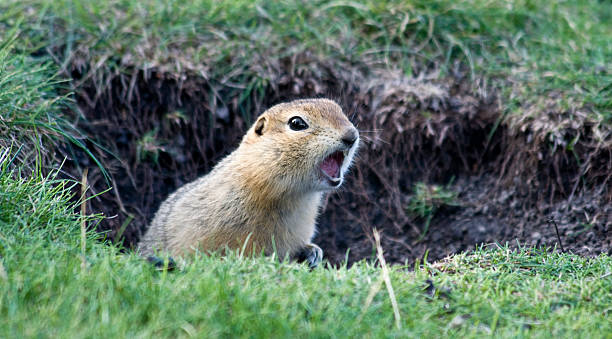
At first glance, ground squirrels may seem like harmless little creatures. They’re small, mostly harmless-looking, and they mind their own business for the most part. However, if you have ground squirrels in your yard, there’s a good chance they’re doing more harm than you realize. Here’s a look at some of the damage ground squirrels can cause.
They Destroy Plants
One of the main reasons people don’t want ground squirrels in their yards is because they destroy plants. If you have a garden, the last thing you want is for ground squirrels to start eating your plants or digging them up. Ground squirrels can still damage your plants even if you don’t have a garden. They like to chew on bark, damaging the tree over time.
They Carry Disease
Another reason to avoid having ground squirrels in your yard is that they can carry diseases. Some illnesses that ground squirrels carry include rabies and the bubonic plague. While it’s unlikely that you’ll catch either of those diseases from a ground squirrel, it’s still possible, so avoiding contact with these animals is best.
They Attract Other Pests
Finally, ground squirrels can attract other pests to your property. Because they like to hoard food, ground squirrels can attract rats, mice, and other rodents to your yard in search of an easy meal. Additionally, ground squirrels carry fleas, which can jump from the squirrel to your pet, and eventually into your home.
They Attract Other Pests
Finally, ground squirrels can attract other pests to your property. Because they like to hoard food, ground squirrels can attract rats, mice, and other rodents to your yard in search of an easy meal. Additionally, ground squirrels carry fleas, which can jump from the squirrel to your pet and eventually into your home.
Not only are ground squirrels pests themselves, but they also attract other pests. For example, if you have ground squirrels in your yard, there’s a good chance you’ll also end up with rats at some point.
That’s because rats are drawn to the same food sources as ground squirrels, so they often follow them into yards and homes. Once rats are in your home, they can contaminate food and spread disease, so it’s best to avoid having ground squirrels around.
As you can see, there are many good reasons to avoid having ground squirrels in your yard. If you have them now, it’s essential to take steps to get rid of them before they cause any more damage.
Luckily, many pest control companies specialize in getting rid of ground squirrels and other pests, so finding one to help should be relatively easy.
Just do your research before hiring anyone so that you can be sure they’re reputable and will do an excellent job of getting rid of the problem.***
What is the best method to get rid of ground squirrels?
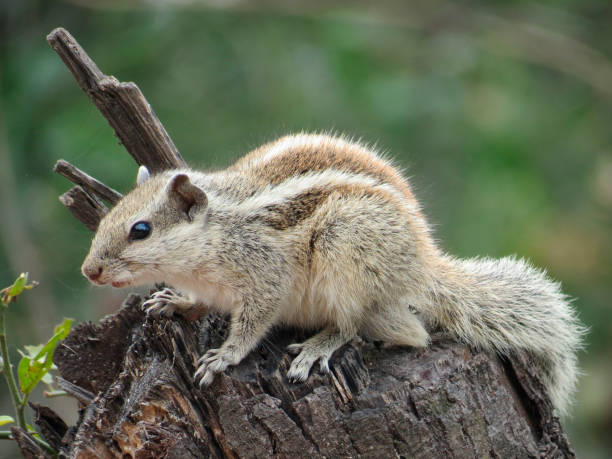
Ground squirrels can be a real nuisance. They dig holes in your yard, eat flowers, and make a mess. If you’re looking for the best method to get rid of ground squirrels, you’ve come to the right place. This blog post will cover three ways to eliminate those pesky critters.
Trapping
Trapping is one of the most effective methods for getting rid of ground squirrels. Depending on your preference, you can either use a live trap or a lethal trap.
live traps are great because they allow you to release the squirrels elsewhere but require more work. Deadly traps are more straightforward and don’t require as much maintenance, but some people feel better about removing the animals alive. Whichever method you choose, check the trap regularly, so the animals don’t suffer needlessly.
Poison
Another option for getting rid of ground squirrels is poisoning them. This method is not for everyone, as it involves using toxic chemicals. If you do choose to go this route, make sure to purchase a product that is specifically designed to kill ground squirrels.
Baits meant for rats or mice will not work on these animals and could potentially harm other non-target animals if they consume the bait. Always follow the directions on the product label carefully to avoid any accidents.
Exclusion
The third and final method we’ll discuss is exclusion. This simply means preventing access to the areas where ground squirrels are causing damage. One way to do this is by installing a wire fence around your garden or flower bed.
The bar should be buried at least 1 foot underground and extended 2 feet above ground level to deter the animals from digging underneath or climbing over it. Another way to exclude ground squirrels is by sealing all openings in your home that are larger than 1/4 inch in diameter. This will prevent them from entering your house for food or shelter.
Ground Squirrels can be a real pain, but fortunately, a few different methods can help eliminate them. If you’re dealing with a ground squirrel problem, try one of the three methods discussed in this blog post and see which works best. Good luck!
What do ground squirrels hate the most?
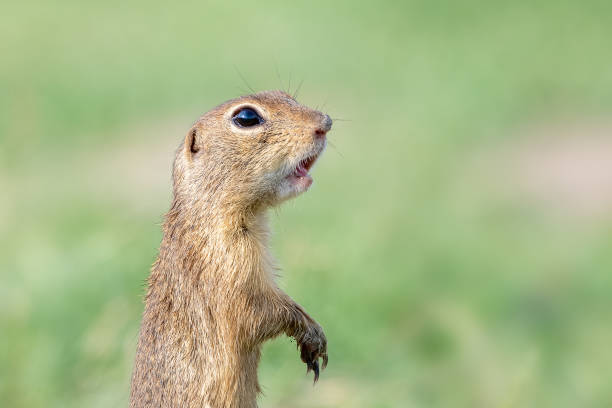
Ground squirrels are one of the most common rodents in North America. They’re also one of the most destructive, which is why many people hate them. Ground squirrels are known to dig holes and burrow under houses, wrecking foundations and causing structural damage. They also eat crops and carry diseases. In short, they’re a real nuisance. But what do ground squirrels hate the most? Read on to find out.
Mothballs
Mothballs are a great way to keep ground squirrels away from your home or garden. Simply place a few moth balls around the perimeter of the area you want to protect, and the ground squirrels will stay clear.
Ammonia
Ammonia is another effective way to repel ground squirrels. Soak some rags in ammonia and place them around the area you want to protect. The pungent smell of ammonia will deter ground squirrels from entering the site.
Cayenne pepper
Cayenne pepper is an excellent natural repellent for ground squirrels. Simply sprinkle some cayenne pepper around the perimeter of the area you want to protect, and the ground squirrels will stay away.
Onion
Onion is another natural repellent that works well against ground squirrels. Chop up a few onions and sprinkle them around the area you want to protect. The pungent smell of onions will keep ground squirrels at bay.
Garlic
Garlic is yet another natural repellent that works well against ground squirrels. Cut up some garlic cloves and sprinkle them around the perimeter of the area you want to protect. The pungent smell of garlic will keep ground squirrels away from your home or garden.
There are several things that ground squirrels hate, which makes them relatively easy to repel if you know what you’re doing. Mothballs, ammonia, cayenne pepper, onion, and garlic effectively deter these pesky rodents from entering your home or garden. So if you’re looking for a way to keep ground squirrels away, give one of these things a try!
What smells do ground squirrels dislike?
Ground squirrels are common in many yards and gardens. Although cute, these little rodents can be destructive, digging up plants and eating the roots. If you’re looking for a way to keep ground squirrels out of your yard without using harmful chemicals or traps, you might want to try using scent. Below are some of the most effective smells that ground squirrels dislike.
Predator Urine
One of the most effective ways to deter ground squirrels is the smell of predator urine. You can purchase coyote or fox urine at most hunting and fishing stores. Simply sprinkle it around the perimeter of your property or garden. The ground squirrels will smell the predator’s urine and believe their predators are nearby, causing them to stay away. Just be warned that this method may deter other animals, such as rabbits, deer, and birds.
Ammonia
Another scent that ground squirrels dislike is ammonia. Ammonia is a robust and pungent-smelling chemical found in many household cleaners. You can use full-strength ammonia or diluted ammonia for this method. Simply soak some rags in ammonia and place them around your property or garden. Check the rags regularly and re-soak them when necessary. Be careful when using this method, as ammonia can also harm plants.
Mothballs
Another strong scent that will keep ground squirrels away is mothballs. Mothballs are tiny balls made from pesticides and have a powerful smell. You can purchase mothballs at most hardware stores or online. To use mothballs, simply place them around your property or garden. Be sure to keep them out of reach of children and pets, as they can be harmful if ingested.
If you’re looking for a way to keep ground squirrels out of your yard without using harmful chemicals or traps, you might want to try using scent.
Predator urine, ammonia, and mothballs effectively deter these little rodents. Just be sure to use these methods safely and protect children and pets from any chemicals you use.
What are the risks associated with getting rid of ground squirrels chemically?
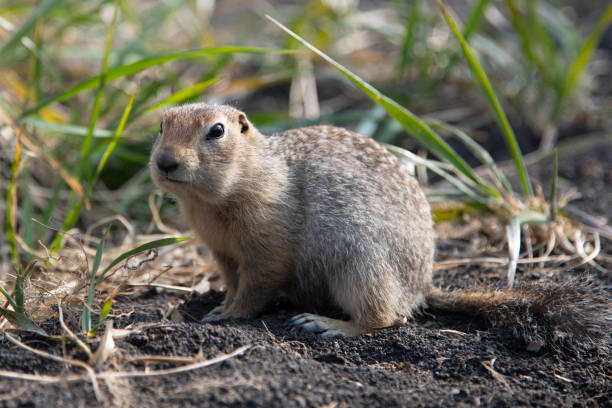
Ground squirrels are a common nuisance wildlife species in many areas of the United States. While their burrowing habits can cause damage to yards and gardens, these animals also carry several diseases that can be transmitted to humans and pets, making them a potential health hazard.
To protect people and property, some homeowners chemically control ground squirrel populations. However, some risks associated with this control method should be considered before taking action.
The first risk to consider is the potential for secondary poisoning. Secondary poisoning occurs when a non-target animal ingests poison intended for another species and suffers harmful or fatal consequences. This can happen if a ground squirrel that a rodenticide bait has poisoned then enters the home through a pet door and is consumed by a family dog or cat.
It can also occur if poisoned bait is left within reach of young children or if rodents drag contaminated baits into areas where they are not intended to be used. To avoid secondary poisoning, it is essential to follow all label instructions carefully and to keep tricks out of reach of children, pets, and non-target animals.
Another potential risk when using rodenticides to control ground squirrels is the possibility of groundwater contamination. Many rodenticides are made with ingredients that can harm people and the environment if they leach into groundwater supplies.
To reduce the chances of contamination, always apply baits according to label directions and never allow temptations to come into contact with surface water or water wells. Should contamination occur, contact your local water supplier immediately so they can take appropriate action.
Finally, it is essential to consider rodenticide’s potential long-term effects before taking action against ground squirrels. Because these products kill by causing internal bleeding, there is always the chance that an animal could suffer a slow and painful death if not enough poison is ingested to kill outright.
Additionally, repeated use of rodenticides in an area can develop resistance in specific populations, making the bait less effective over time. For these reasons, it is essential to weigh the pros and cons of using this method of ground squirrel control before taking action.
There are several risks associated with using chemicals to control ground squirrel populations. These include the potential for secondary poisoning, groundwater contamination, and long-term resistance issues. Homeowners should weigh these risks against the benefits of chemical control before taking action against these nuisance animals.
Conclusion
Ground squirrels can be a nuisance to homeowners because of their burrowing habits and the potential diseases they carry. Some people choose to chemically control these animals, but there are several risks associated with this method, including secondary poisoning, groundwater contamination, and long-term resistance issues. Homeowners should weigh these risks against the benefits of chemical control before taking action.
FAQ
Can ground squirrels cause diseases in humans?
Yes, ground squirrels can carry several diseases transmitted to humans, making them a potential health hazard.
What kind of diseases do ground squirrels carry?
Ground squirrels can carry a variety of diseases, including the hantavirus, bubonic plague, and salmonella.
What is secondary poisoning?
Secondary poisoning occurs when a non-target animal ingests poison intended for another species and suffers harmful or fatal consequences. This can happen if a ground squirrel that a rodenticide bait has poisoned then enters the home through a pet door and is consumed by a family dog or cat.
What are the long-term effects of using rodenticides?
Repeated use of rodenticides in an area can develop resistance in specific populations, making the bait less effective over time. Additionally, because these products kill by causing internal bleeding, there is always the chance that an animal could suffer a slow and painful death if not enough poison is ingested to kill outright.
DO COFFEE GROUNDS KEEP SQUIRRELS AWAY?
Coffee grounds have a strong smell that squirrels do not like. You can use coffee grounds as a natural repellent by sprinkling them around your garden or yard.
Will wd40 keep squirrels away?
WD40 does not repel squirrels. In fact, because it has a strong smell, it may attract them.

